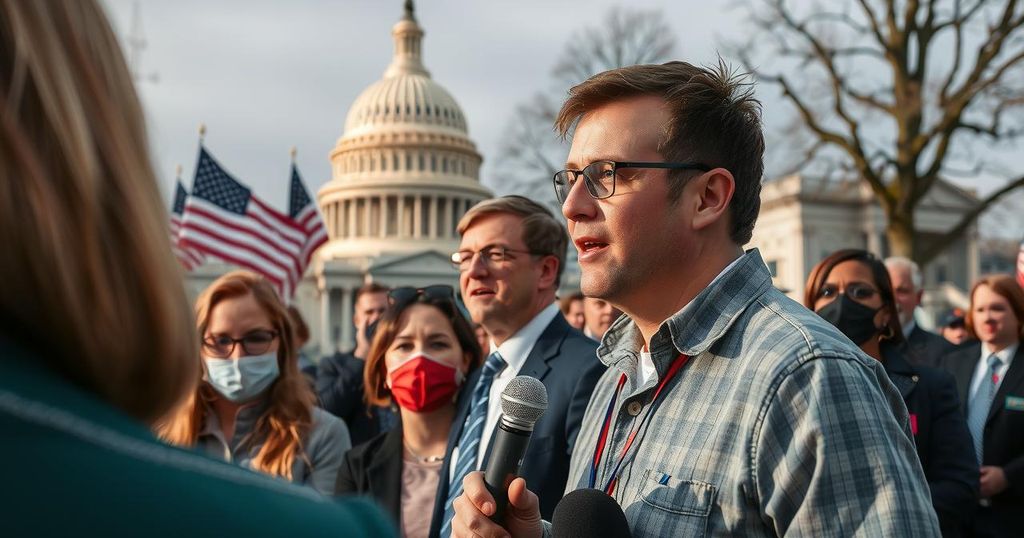Following the January 6th insurrection, 157 members of the new Congress are identified as election deniers, highlighting the sustained influence of Trump within the Republican Party. This represents over 38% of the Senate and 62% of the House GOP caucus. The contrast with South Korea and Brazil’s swift accountability measures underscores a troubling lack of urgency within the U.S. regarding election denialism.
Four years following the January 6th insurrection, the political landscape in the United States remains strikingly similar, with 157 members of the newly elected 119th Congress identified as election deniers. This significant number reflects the enduring influence of Donald Trump within the Republican Party as he prepares for a return to the White House. While there has been a slight decrease from the previous Congress, the persistence of this label has rendered it politically trivial.
Among the current election deniers are 137 House members and 20 Senate members, comprising over 38% of the Senate Republican caucus and more than 62% of the House GOP caucus. Prominent figures include Senators Ted Cruz and Rick Scott, alongside the entire Republican House leadership. Furthermore, the trend extends beyond Congress, with a notable presence of election-denying governors and state officials. The negligible repercussions faced by these politicians illustrate a concerning normalization of such behavior, contrasting sharply with other democratic nations where accountability followed severe political unrest.
In recent events, both South Korea and Brazil exemplified decisive actions against political misconduct following their own crises, with swift impeachment procedures initiated against officials who overstepped their authority or attempted to undermine democratic processes. In comparison, the U.S. response to the January 6 riots appears tepid, with Attorney General Merrick Garland criticized for a cautious, bottom-up approach that prioritized individual rioters over higher-ranking officials responsible for inciting the insurrection.
The lack of significant accountability for Trump and his supporters, highlighted by the absence of serious legal consequences, demonstrates a troubling trend in U.S. politics, where alleged wrongdoing is increasingly normalized. The political climate has shifted to allow for the continued presence of election deniers within high offices, solidifying their stance in the political mainstream. Thus, four years post-insurrection, America finds itself contending not only with its past but with a political culture that is increasingly indifferent to accountability.
The article discusses the enduring presence of election deniers in the United States Congress, particularly four years after the January 6th insurrection. It highlights the number of congressional representatives who continue to support false claims about the 2020 presidential election and how these figures reflect broader tendencies within American politics that seem to enable such conduct without significant consequences. The discussion contrasts the U.S. response to similar political unrest and accountability measures taken in South Korea and Brazil, underscoring a lack of urgency in addressing the actions of lawmakers who promote election denialism. Moreover, this persistence raises questions regarding the normalization of extreme political rhetoric and its implications for American democracy.
The continued presence of 157 election deniers in Congress, four years after the January 6 insurrection, signifies a troubling normalization of extreme political behaviors within the U.S. political landscape. As illustrated by international counterparts that swiftly imposed accountability for similar actions, the absence of such measures in the United States reveals a failure to adequately respond to threats against democratic institutions. This situation not only impacts the credibility of American democracy but also potentially paves the way for further erosion of accountability and political integrity.
Original Source: zeteo.com






